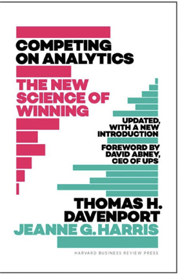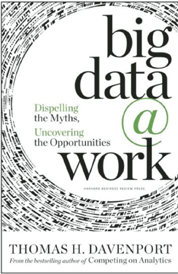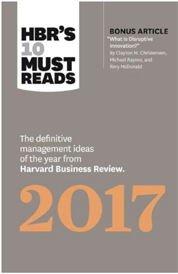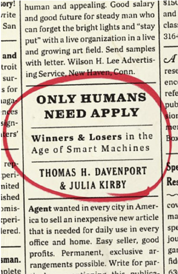Tom Davenport is the President’s Distinguished Professor of Information Technology and Management at Babson College, the co-founder of the International Institute for Analytics, a Fellow of the MIT Initiative for the Digital Economy, and a Senior Advisor to Deloitte Analytics. He teaches analytics and big data in executive programs at Babson, Harvard Business School, MIT Sloan School, and Boston University.
He has written or edited twenty books and over 100 articles for Harvard Business Review, Sloan Management Review, the Financial Times, and many other publications. He has been named one of the top three business/technology analysts in the world, one of the 100 most influential people in the IT industry, and one of the world’s top fifty business school professors by Fortune magazine. He earned his Ph.D from Harvard University and has taught at the Harvard Business School, the University of Chicago, the Tuck School of Business, Boston University, and the University of Texas at Austin.
One of HBR’s most frequently published authors, Tom has been at the forefront of the Process Innovation, Knowledge Management, and Analytics and Big Data movements. He pioneered the concept of “competing on analytics” with his 2006 Harvard Business Review article and his 2007 book by the same name. Since then, he has continued to provide cutting-edge insights on how companies can use analytics and big data to their advantage – topics that he explored in his 2014 book, Big Data@Work (Harvard Business Review Press). The updated edition of his bestselling business classic, Competing on Analytics: The New Science of Winning, was released by Harvard Business Review Press in September 2017.
Extending his work on analytics and big data to its logical conclusion, today Tom is thinking, writing, and speaking about what happens to humans and organizations when smart machines make many important decisions? He has explored this question and its ramifications on society and business in a series of publications. Harvard Business Review editors highlighted his latest ideas in the recently released 10 Must Reads 2017: The Definitive Management Ideas of the Year. His What's Your Data Strategy? article was published in the June 2017 issue of HBR, one on Artificial Intelligence for the Real World was highlighted in the January 2018 HBR, and a piece on When Your Jobs Become Commodities was in the January 2018 MIT Sloan Management Review. Tom’s book, co-authored with Julia Kirby, Only Humans Need Apply: Winners and Losers in the Age of Smart Machines offers tangible tools for individuals who need to work with cognitive technologies and in his forth-coming book, The AI Advantage: How to Put the Artificial Intelligence Revolution to Work, he provides a guide to using artificial technologies in business.
LinkedIn recently named Tom Davenport the #1 "must-know" writer in the education indus-try. His posts, which are shared weekly to his over 250,000 followers, explore topics such as the future of cybersecurity, big data usage at the NYPD, the automation of work, and the rise of strategy machines. The posts offer practical and often humorous insight into Tom's research on big data, analytics, and cognitive technologies, explaining how their usage is reshaping business, politics, and society.








